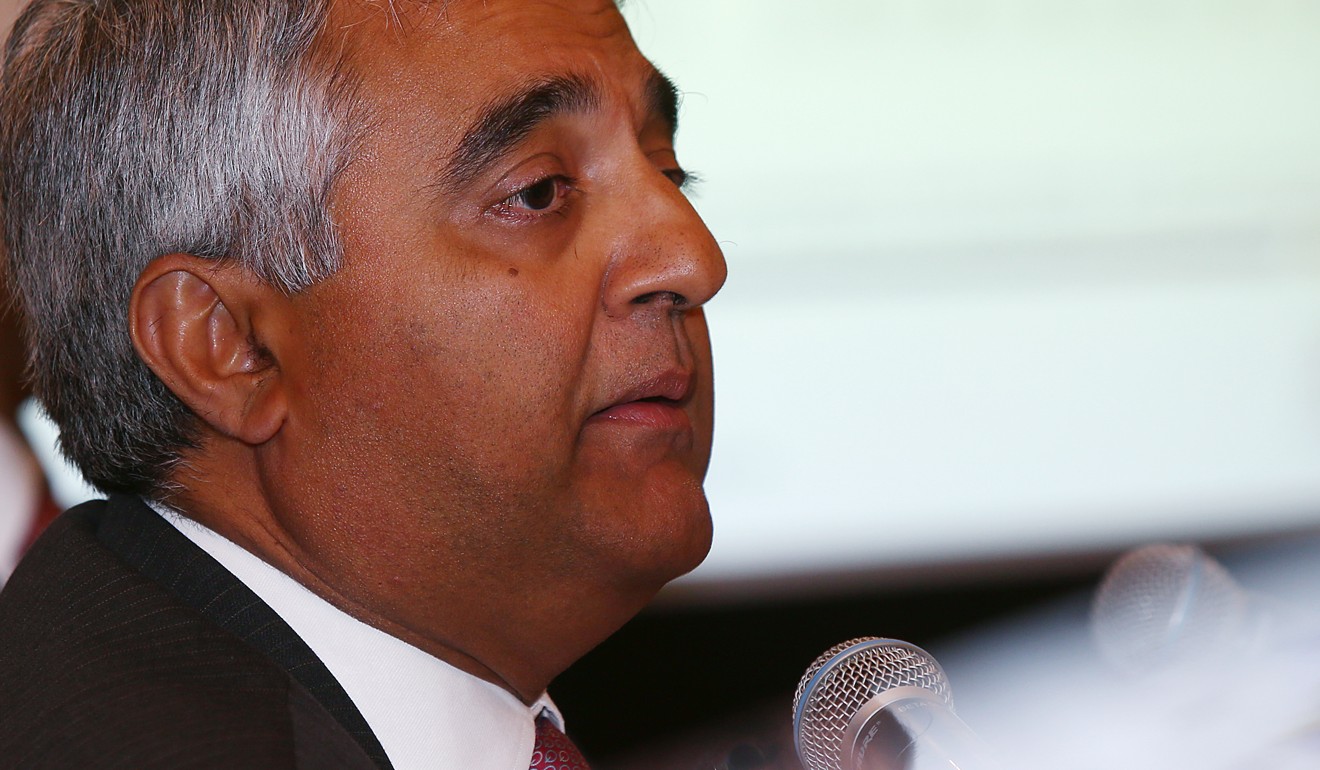
JP Morgan expects mainlanders to continue investing in Hong Kong stocks, as yuan stays strong
Officials from banking giant’s Asian asset management operation say there are still ‘limited investment choices in the mainland’
A continued stronger yuan against the US dollar should reduce the number of mainland investors still rushing to snap up Hong Kong stocks, to hedge against any future weakening in the Chinese currency.
But it certainly won’t stop the southbound capital flows still being experienced by the Hong Kong-Shanghai-Shenzhen Stock Connect trading system, top officials at J.P. Morgan Asset Management said in their latest regional market update on Wednesday.
“The recent strengthening of the yuan and weakening of the dollar may slow the southbound capital flow, as mainlanders feel less of a need to hedge against a possible decline in the Chinese currency.
“But I don’t think we will see any reverse in the tide of capital flow southward this year,” said Tai Hui, the investment giant’s chief market strategist for Asia.
“Besides hedging [against] the yuan, mainlanders still like to invest in Hong Kong stocks to diversify their portfolio.
“There are limited investment choices in the mainland and there are increasing policies [being put] in place to discourage them from investing in property, while the fixed income market is complicated for retail investors,” said Hui.

“Hong Kong is the most convenient market for them to invest. As such, I see southbound capital inflow to Hong Kong slowing a bit, but not dropping substantially.”
The yuan’s 6.5 per cent weakening against the greenback in 2016 sparked many mainlanders to plough into Hong Kong stocks, property and insurance policies to hedge the risks, as the Hong Kong dollar is pegged to the US.
Mainland buying of Hong Kong stocks via the two Stock Connects with Hong Kong (Shanghai and Shenzhen) doubled last year, with their trading representing six per cent of total market turnover.
The yuan, however, rose to a four-month high on Tuesday to around 6.5 to the dollar, after gaining 6.8 per cent on its US rival over the full year – the biggest gain in nine years which wiped out the losses of 2016 and reversed three straight years of depreciation.
And Hui believes the Chinese currency will continue to strengthen this year as Beijing strives towards its ultimate goal of gaining its full international use.
That expectation by Beijing inched ever close on Wednesday when Pakistan confirmed it is hoping to boost trade and economic ties with China, by trading with the country in yuan, the State Bank of Pakistan in Karachi said. Imports, exports and financial transactions between the two countries can now be denominated in the yuan.
Besides hedging [against] the yuan, mainlanders still like to invest in Hong Kong stocks to diversify their portfolio. There are limited investment choices in the mainland and there are increasing policies [being put] in place to discourage them from investing in property
Regulatory frameworks such as the opening of letters of credit, clearing of transactions and financing facilities in yuan have been put in place, it said, adding the move has put the yuan on a par with other international currencies such as the US dollar, euro and Japanese yen.
Ayaz Ebrahim, co-head of the Asia Pacific regional team at J.P. Morgan Asset Management, added the firm also holds a positive market outlook for Asia, particularly Hong Kong, China, India and South Korea, but that to expect some volatility.
“The market rallies in Asian stock markets in 2017 were supported by strong corporate earnings growth. We expect this to continue in 2018 across different sectors, with e-commerce in China and fintech development in India leading the growth trend,” Ebrahim said.
In Hong Kong, he believes H-shares – listed companies incorporated in mainland China that are traded on the Hong Kong stock exchange [A-shares refer to those listed in Shanghai or Shenzhen] – would continue to grow well, especially given the China Securities Regulatory Commission’s recent announcement of a pilot project on “full circulation” of selected H-share listed companies.
“H-shares are still the easiest way for international investors who want to invest in the China story as not all A-shares are allowed to be traded by international investors,” Ebrahim said.
“As we are positive on the Chinese economic outlook, we are also positive on H-shares.”
“What could go wrong, is if the US increases interest rates more aggressively than we expect. The Chinese government may also tighten regulation on shadow banking, which may slow the economy.”
Regionally, Hui said wider Asian markets may be more volatile this year, predicting a worst-case scenario of a 15-17 per cent fall, compared with 4 per cent drop last year.
“Investors should adopt a combination of styles to capture growth while maintaining downside protection,” he said, recommending they look at consumption, health care and technology stocks for growth, while buying high-dividend paying stocks for defensive approach.

